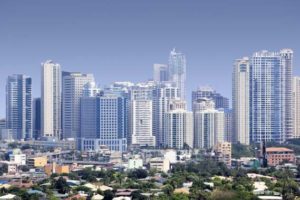Australia: New Labor Agreement for the horticulture industry
The Department of Immigration announced a new Labor Agreement template for the horticulture industry.
Impact
It will allow Australian employer visa sponsorship for the following skilled and semi-skilled workers:
- Subclass 482 Temporary Skills Shortage (TSS) visa
- Subclass 494 Skilled Employer Sponsored Regional (SESR) visa – with a pathway to permanent residency through the Subclass 191 Permanent Residence (Skilled Regional) visa
- Subclass 186 Employer Nomination Scheme (ENS) visa – provides a temporary residence transitional pathway
Horticulture industry occupations include: Growers, Farm Managers, Production Horticulturists and Facility Supervisors. They are included in the Labor Agreement template despite not appearing in the ANZSCO skills shortage lists.
Also included in the list are Truck Drivers, Fork Lift Drivers, Nurserypersons, Machinery Managers, Quality Assurance Managers and Mechanical Engineers.
When applying for these visa consider the advantages and disadvantages below:
Salary concessions
It is possible to obtain a discount of up to 10 percent on the minimum annual earnings where it can be demonstrated that wages for equivalent Australian workers are below Temporary Skill Migration Income Threshold (TSMIT). Currently set at AU$ 53,900 per annum, minimum annual earnings could be as low as AU$ 48,510.
Additionally, a broader range of monetary and non-monetary benefits (e.g. accommodation) can be included as part of the “guaranteed earnings.” This is positive for employers in regional Australia who usually package accommodation and other living arrangements with an employee’s salary.
English concessions
Under the Labor Agreement template, TSS visa applicants would only require an overall IELTS (International English Language Testing System) 5.0 with a minimum of at least 4.0 in each individual component. Applicants for the ENS and SESR visas must also obtain a score of at least IELTS 5.0 overall, with a minimum of at least 4.5 in each individual component.
Age concessions
Applicants for an ENS or SESR visa can be up to fifty years of age. The standard maximum age for skilled migration under these programs is forty-five years of age.
Looking ahead
Other requirements
Employers are required to show that the standard Labor Market Testing requirements for the TSS and SESR programs have been met prior to lodgment of a nomination application. Visa applicants for the TSS visa will require a skills assessment, in line with the SESR visa requirements.
This summary was prepared using information obtained from the Australian Home Affairs and Peregrine Immigration Management.
Disclaimer: The above information is provided for general information purposes only and should not be construed as legal advice. If you have any further inquiries regarding the applicability of this information, please contact Debra Beynon, Regional Immigration Manager, APAC.
European Union: Upcoming Schengen visa code amendments
The amended Schengen visa code will take effect on Feb. 2, 2020.
Impact
Changes include more flexible procedures, longer visa validities and higher fees.
Flexible procedures:
- Travelers will be able to submit their applications up to six months in advance (nine months for seafarers) but no later than 15 days before their planned trip.
- Applications can be completed electronically (subject to availability).
- Children between 0 – 6 years may be exempt from the visa fee.
- Frequent travelers with a positive visa history can apply for a multiple-entry visa, with an increasing validity period (from one year to a maximum of five years), saving time and costs for applicants and member states.
- The standard visa fee will increase from 60 to 80 Euros.
- Representative authorities – the new code requires all Schengen Member states to be present in every third country, through their embassy/consulate, that of another Member state, or an external service provider. External service providers will be able to charge a service fee; this should not exceed the amount of the visa fee.
- Cooperation on readmission of irregular migrants – under a new mechanism, the Commission will regularly assess third countries’ cooperation on readmission of irregular migrants and propose more or less restrictive visa measures to motivate or reward increased cooperation.
This summary was prepared using information obtained from Schengen Visa Info.
Disclaimer: The above information is provided for general information purposes only and should not be construed as legal advice. If you have any further inquiries regarding the applicability of this information, please contact Laxmi Vikraman, Regional Immigration Manager, EMEA.
Philippines: 2020 annual report
Within the first 60 days of every calendar year all registered aliens holding, or in the process of obtaining, an Alien Certificate of Registration (ACR) I-Card shall report in person to the Bureau of Immigration (BI) main office, or to any BI-designated office.
Impact 
Reporting period is between Jan. 1 – Feb. 29, 2020.
Foreign nationals in the Philippines under an ACR I-Card are not required to report if they are:
- 47(a)2 visa holders
- Retirees
- Special non-immigrant E.O. 226 visa holders under regional or area headquarters, or regional operating headquarters of multinational companies
Exemptions include:
- Children aged 14 years and under
- Adults aged 65 and over
- Those who are mentally or physically incapacitated (a PWD ID must be presented)
- Pregnant women
- Those confined in a hospital can write and request a one-week exemption (approved medical certificate must be provided)
Non-compliant consequences:
- Submit a Motion for Reconsideration (MR) for belated compliance and pay PHP 510 as MR fees
- Annual reportorial fees, including paying PHP 200 per month of delay up to a maximum of PHP 2,000 per year. A fraction of a month shall be considered one month.
This summary was prepared using information obtained from the Immigration Operations Order No. JHM-2019-011 in relation to Section 10 of Republic Act No. 562, as amended, also known as the Alien Registration Act of 1950.
Disclaimer: The above information is provided for general information purposes only and should not be construed as legal advice. If you have any further inquiries regarding the applicability of this information, please contact Debra Beynon, Regional Immigration Manager, APAC.
Saudi Arabia: Yellow band elimination from Nitaqat Program
The Ministry of Labor and Social Development (MLSD) has announced it will cancel the yellow band in its Saudization Program, Nitaqat.
Impact 
Companies currently in the yellow band will be moved into the red band and will become non-compliant unless they improve their Nitaqat rating.
What is Nitaqat?
Nitaqat is a program of Saudization, aiming to increase employment of Saudi nationals in the private sector. It gives companies privileges, requirements or limitations in the visa process for their foreign workers. It is based on the percentage of their Saudi national workforce.
Companies are grouped by industry sector and company size, then ranked into categories:
- Premium employs 40 percent of Saudi nationals
- Green employs 12 percent of Saudi nationals
- Yellow employs 7 percent of Saudi nationals
- Red employs 4 percent of Saudi nationals
Companies in the red band face most restrictions; they are unable to hire new foreign national employees, renew work permits or open a new business/branch in Saudi Arabia. Red band companies also forfeit their authority to give permission to employees to change employers in Saudi.
Companies in green and premium can easily obtain a new visa in two months and can renew iqamas (residency permit) before the three-months expiry date. They can change professions swiftly.
Looking ahead
This decision aims to encourage establishments under this category to move to the green category or higher. According to a ministry statement, all ministry services will be made available to nationals.
This summary was prepared using information obtained from Peregrine Immigration Management.
Disclaimer: The above information is provided for general information purposes only and should not be construed as legal advice. If you have any further inquiries regarding the applicability of this information, please contact Laxmi Vikraman, Regional Immigration Manager, EMEA.
Singapore: Cut backs on Dependency Ratio Ceiling
To reduce the growth of foreign workers in the services sector and heighten good governance on employment restructure, Ministry of Manpower (MOM) has announced the percentage cut back for the Dependency Ratio Ceiling (DRC)* as follows:
- Services Sector Work Permit DRC – From 40 percent to 38 percent since Jan. 1, 2020, and will reduce further to 35 percent in Jan. 2021
- S Pass Sub-DRC – From 15 percent to 13 percent since Jan. 1, 2020, and will reduce further to 10 percent in Jan. 2021
There are no changes to the DRCs and S Pass Sub-DRCs for sectors such as, Construction, Manufacturing, Marine Shipyard and Process.
Impact

21707701 – singapore skyline at night
Service sector employers will be directly affected if they have excess numbers on work permits and S Pass holders. We encourage employers to prepare and plan. Please contact us for an in-depth discussion and advice.
Looking ahead
To alleviate the number of changes, employers in the services sector are permitted to retain their excess number of work permit and S Pass holders until expiration dates are met. Employers are not permitted to renew or hire new work permit and S Pass holders if the new DRC or Sub-DRC criteria are not met. Employers should consider reducing the number of their work permit and S Pass holders and look to hire more local employees.
*DRC refers to the maximum permitted ratio of foreign workers to the total workforce that a company is allowed to hire.
This summary was prepared using information obtained from the Ministry of Manpower.
Disclaimer: The above information is provided for general information purposes only and should not be construed as legal advice. If you have any further inquiries regarding the applicability of this information, please contact Debra Beynon, Regional Immigration Manager, APAC.
South Korea: Stricter policy enforcement targeting illegal over stayers
The Korean national assembly is debating tougher penalties for of illegal residents. Penalties will be waived or reduced for those who voluntarily report illegal residence earlier (Feb. 28, 2020).
Impact
Illegal residents are currently subject to fines ranging from KRW 1,000,000 for illegal entry of less than one month, to KRW 2,000,000 for illegal stays of three years or more. The current maximum penalty for employers of illegal entrants is KRW 20,000,000 or three years imprisonment.
The proposed amendment currently under discussion will increase the fine to KRW 50,000,000 and five years’ imprisonment.
Voluntary reporting for illegal residents
Illegal residents who voluntarily report their presence (Feb. 28, 2020) and are scheduled to depart before June 30, 2020, will benefit from:
- A waived penalty fine
- A certificate of voluntary departure will be issued, allowing an application for a Korean visa in the future. On reapplying, a single-entry C3 visa allowing a maximum stay of ninety days will be authorized. If the applicant is compliant with the conditions granted and hasn’t committed any illegal activities, they may qualify for multiple entries and a longer duration of stay.
- Applicants will be allowed to apply for Test of Proficiency in Korean (TOPIK). If they obtain level 2 or above, they may be eligible for an E9 visa (for workers from certain countries only).
Illegal residents who voluntarily report their residential status before Feb. 28, but are scheduled to leave the country after June 30, 2020; or illegal residents who do not voluntarily report their residential status before Feb. 28 and the government discovers their status after March 2, 2020, will:
- Incur a penalty fine and the violation period will be calculated from March 1, 2020
- Be banned from re-entry to South Korea for six months to one year
- Be permanently prohibited from entering South Korea if they do not pay the penalty fee
Voluntary reporting for employers
Depending on the industry sector there will be a specified period for reporting.
Agriculture and fishing industry
The voluntary reporting system operated between Dec. 11, 2019 and Jan. 15, 2020. For employers who reported within this period, the penalty fine was waived and their employees were provided with legal opportunities for seasonal work. A new visa type for seasonal workers (E8) is under discussion at the Ministry of Justice.
Manufacturing industry
The voluntary reporting system is still in operation until March 31, 2020. For employers reporting during this period, the penalty fine will be waived and their employees will be allowed to stay for three more months from the reporting date.
Small and medium-sized businesses under the Employment Permit System (EPS)
- The voluntary reporting system is still in operation until March 31, 2020.
- 30 percent of the penalty fee will be imposed for employers who report within this period. However, if they are caught under government investigation without having reported then 100 percent of the fee will be imposed. They will be banned from hiring foreign nationals for a minimum of three years. Immigration officers will calculate the penalty fee based on the period of violation.
- 30 percent of the penalty fee will be imposed for illegal residents whose employers report them. They will be allowed to work at the sponsoring company until their E9 visa expires. If they prefer to work elsewhere, the Ministry of Employment and Labor will help them with finding another job. However, if they are caught under government investigation without having reported then 100 percent of the penalty fee will be imposed along with a forced departure order.
This summary was prepared using information obtained from the Korean Government and Peregrine Immigration Management.
Disclaimer: The above information is provided for general information purposes only and should not be construed as legal advice. If you have any further inquiries regarding the applicability of this information, please contact Debra Beynon, Regional Immigration Manager, APAC.
We track policy changes in over 120 countries. Find out how we can help you in this short video.



